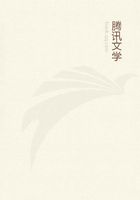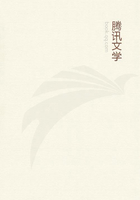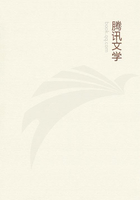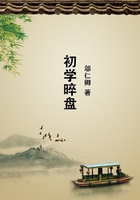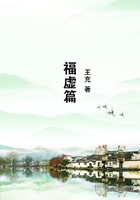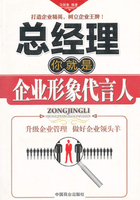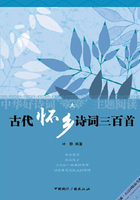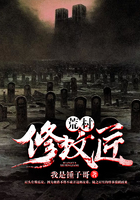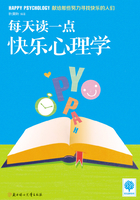"I was born," he said, "at Elizondo, in the valley of Baztan. My name is Don Jose Lizzarrabengoa, and you know enough of Spain, sir, to know at once, by my name, that I come of an old Christian and Basque stock.
I call myself Don, because I have a right to it, and if I were at Elizondo I could show you my parchment genealogy. My family wanted me to go into the church, and made me study for it, but I did not like work. I was too fond of playing tennis, and that was my ruin. When we Navarrese begin to play tennis, we forget everything else. One day, when I had won the game, a young fellow from Alava picked a quarrel with me. We took to our /maquilas/, and I won again. But I had to leave the neighbourhood. I fell in with some dragoons, and enlisted in the Almanza Cavalry Regiment. Mountain folks like us soon learn to be soldiers. Before long I was a corporal, and I had been told I should soon be made a sergeant, when, to my misfortune, I was put on guard at the Seville Tobacco Factory. If you have been to Seville you have seen the great building, just outside the ramparts, close to the Guadalquivir; I can fancy I see the entrance, and the guard room just beside it, even now. When Spanish soldiers are on duty, they either play cards or go to sleep. I, like an honest Navarrese, always tried to keep myself busy. I was making a chain to hold my priming-pin, out of a bit of wire: all at once, my comrades said, 'there's the bell ringing, the girls are coming back to work.' You must know, sir, that there are quite four or five hundred women employed in the factory.
They roll the cigars in a great room into which no man can go without a permit from the /Veintiquatro/, because when the weather is hot they make themselves at home, especially the young ones. When the work-girls come back after their dinner, numbers of young men go down to see them pass by, and talk all sorts of nonsense to them. Very few of those young ladies will refuse a silk mantilla, and men who care for that sort of sport have nothing to do but bend down and pick their fish up. While the others watched the girls go by, I stayed on my bench near the door. I was a young fellow then--my heart was still in my own country, and I didn't believe in any pretty girls who hadn't blue skirts and long plaits of hair falling on their shoulders. And besides, I was rather afraid of the Andalusian women. I had not got used to their ways yet; they were always jeering one--never spoke a single word of sense. So I was sitting with my nose down upon my chain, when I heard some bystanders say, 'Here comes the /gitanella/!'
Then I lifted up my eyes, and I saw her! It was that very Carmen you know, and in whose rooms I met you a few months ago.
Iron-shod sticks used by the Basques.
Magistrate in charge of the municipal police arrangements, and local government regulations.
The costume usually worn by peasant women in Navarre and the Basque Provinces.
"She was wearing a very short skirt, below which her white silk stockings--with more than one hole in them--and her dainty red morocco shoes, fastened with flame-coloured ribbons, were clearly seen. She had thrown her mantilla back, to show her shoulders, and a great bunch of acacia that was thrust into her chemise. She had another acacia blossom in the corner of her mouth, and she walked along, swaying her hips, like a filly from the Cordova stud farm. In my country anybody who had seen a woman dressed in that fashion would have crossed himself. At Seville every man paid her some bold compliment on her appearance. She had an answer for each and all, with her hand on her hip, as bold as the thorough gipsy she was. At first I didn't like her looks, and I fell to my work again. But she, like all women and cats, who won't come if you call them, and do come if you don't call them, stopped short in front of me, and spoke to me.
" '/Compadre/,' said she, in the Andalusian fashion, 'won't you give me your chain for the keys of my strong box?'
" 'It's for my priming-pin,' said I.
" 'Your priming-pin!' she cried, with a laugh. 'Oho! I suppose the gentleman makes lace, as he wants pins!'
"Everybody began to laugh, and I felt myself getting red in the face, and couldn't hit on anything in answer.
" 'Come, my love!' she began again, 'make me seven ells of lace for my mantilla, my pet pin-maker!'
"And taking the acacia blossom out of her mouth she flipped it at me with her thumb so that it hit me just between the eyes. I tell you, sir, I felt as if a bullet had struck me. I didn't know which way to look. I sat stock-still, like a wooden board. When she had gone into the factory, I saw the acacia blossom, which had fallen on the ground between my feet. I don't know what made me do it, but I picked it up, unseen by any of my comrades, and put it carefully inside my jacket.
That was my first folly.

